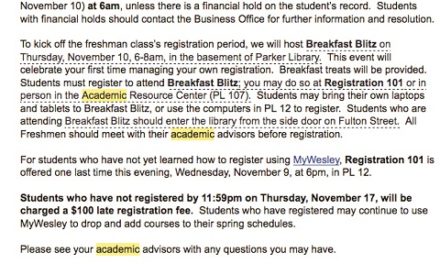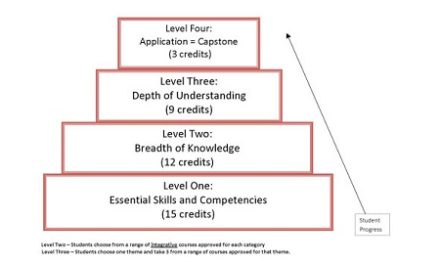By Claudette Richards, The Whetstone
It took senior Monisola Olowere a while before she understood the financial implications of moving off campus.
“When I first asked them about the amount it will cost to live off campus, they told me that my scholarship would be cut by one-third,†she said. “Then, when it was time to move off campus, they didn’t know how much my bill was until I literally moved out.â€
After she moved out, her bill was finally updated, she said.
Other students expressed similar problems communicating with the financial aid office about their tuition bill and grants.
Financial aid is reduced when students move off campus, said Michael J. Hall, director of student financial aid.
“Now, even though a student may tell us they are going to move off campus, and we go through the exercise of showing them how that will affect their aid, we know that in many cases the student must get approval from Residence Life,†he said.
This was the source of the confusion, Hall said.
“We will always wait for the official notification before making the required changes,†he said.
Senior Elvie Domond said the amount of money she got was low.
“I had to keep on making phone calls to see if there was any leftover grant money,†she said. “They told me that now there isn’t anything we could do.â€
Domond said the situation got handled toward the middle of the semester of both terms, during her freshman and sophomore year.
She said the financial aid office gave her the money she needed.
“I kept on making phone calls until I got it,†she said.
Hall said there are certain things students should do to make their financial aid go smoothly.
“We encourage students and families to file their FAFSA as early as possible each award year because it helps insure that the student(s) will be awarded everything they are eligible to receive,†he said.
A lot of factors go into awarding money.
“Some awards are limited, and once the funds are exhausted during the awarding cycle, they are gone for the remainder of that cycle,†he said. “If a student files a FAFSA later in the school year, say, during spring semester, having already attended the fall semester, we will still evaluate their eligibility for the entire year.â€
Senior Emily Temple said she never had a problem with financial aid.
“As far as I could recall, every interaction with financial aid has gone smoothly,†she said.
The best thing to do is talk to people in the financial aid office.
“We encourage students to discuss any financial concerns that they may have with us,†Hall said. “Sometimes we are able to make a meaningful difference, but unfortunately not in every case.â€
Christopher Dearth, Vice President of Enrollment Management, said students should get help if they think they are having financial aid issues.
“If students are having issues financially, speak to somebody, whether it’s the financial aid office or the business office,†he said. “We are willing to work with students.â€





